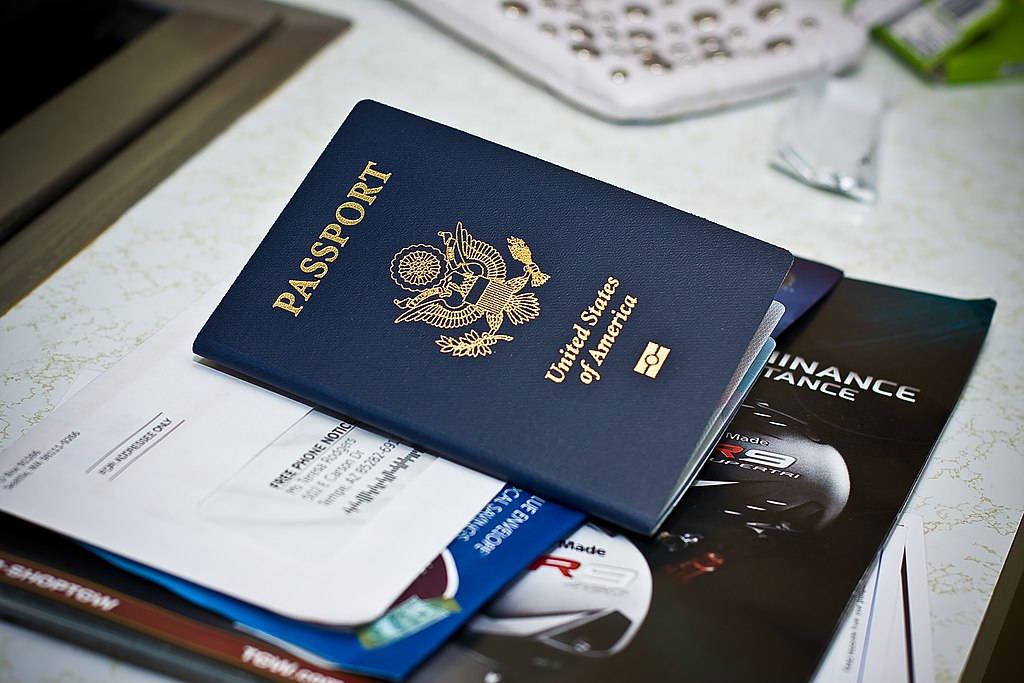Growing up in a world where everything seems tailored to your comfort can shape perspectives in ways not everyone gets to experience. You may not have thought about it much, but certain signs can indicate that someone had a privileged upbringing. It’s not about judgment; it’s about understanding the nuanced ways privilege manifests in people’s lives. Whether it’s the ability to travel often or having access to top-notch education, these signs can tell a lot about one’s early years. Let’s dive into some subtle and not-so-subtle indicators that someone might have grown up with more advantages than most.
1. They Had An Exclusive Education

You can often tell someone had a privileged childhood if they mention attending prestigious schools where tuition costs more than some people’s annual salaries. These are the kinds of institutions where small class sizes and extensive resources set the stage for academic success. According to a study conducted by the National Association of Independent Schools, graduates from private schools often have a head start in college and career opportunities that others might not. The opportunity to learn in such environments can open doors that remain firmly shut for many. It’s about being in a system that prioritizes your success from day one.
Besides the access to superior education, privileged children often have the benefit of exposure to varied extracurricular activities. From fencing to sailing, these are not your run-of-the-mill school sports. Such activities not only enrich their experience but also allow them to cultivate a network of similarly privileged folks. This network can be a powerful tool later in life, maintaining the cycle of privilege. The emphasis here is on an all-rounded education that shapes confident, capable adults.
2. They’ve Traveled The Globe

If someone recounts stories of summers spent in Europe or winters in the Caribbean, they likely had a childhood many would envy. Travel is often a luxury most people can’t afford, especially international trips, which can be quite costly. Growing up with a passport full of stamps from various countries provides exposure to different cultures and a wider worldview. While those traveling might consider it normal, such experiences are far from ordinary for the average child. It’s an upbringing that fosters curiosity and a sense of global citizenship from a young age.
Traveling frequently as a child also means exposure to diverse languages and possibly learning them. Not only does this enhance cognitive abilities, but it also presents more opportunities in a multicultural world. Speaking multiple languages can give someone an edge in various professional fields later in life. It’s a privilege that goes beyond the immediate joy of travel, offering long-lasting benefits. Those memories of wandering through ancient ruins or tasting exotic foods create a unique sense of identity.
3. They’ve Never Worried About Money A Day In Their Life

For those who had a privileged upbringing, money was never something to worry about or even think of. Discussions about finances might have been limited to overheard conversations about stocks or investments, but not about paying bills. According to financial psychologist Dr. Brad Klontz, the absence of financial stress is a significant indicator of privilege. The lack of money talk can lead to a carefree lifestyle that many can only dream about. It’s about feeling secure and never having to question if there’s enough to go around.
Growing up without financial concerns also often means not understanding the value of money. There’s no judgment here, but it does shape how someone might perceive the world. With everything seemingly at their fingertips, the concept of saving or budgeting might seem foreign. This can impact personal relationships later in life, especially with those who had different upbringings. The freedom from financial stress fosters a mindset focused on possibilities rather than limitations.
4. They Went To Posh Summer Camps

Attending summer camp was more of a yearly tradition rather than a one-off experience for many who grew up privileged. These camps aren’t just any camps; often, they are specialized ones focusing on skills like horseback riding or art. The friendships formed at these camps often last a lifetime, creating bonds that cross state lines and even countries. It’s a world where summer means learning new skills while also having the time of your life. These experiences are unique and often create lasting memories of childhood.
The ability to attend such camps comes from a place of financial stability and cultural capital. Not only are these camps expensive, but they also require a level of parental investment in the idea of well-rounded development. They’re more than just a way to pass the time during school breaks; they’re seen as an essential part of growing up. The access to such enriching experiences is something not all children get to enjoy. It becomes a part of one’s identity, shaping interests and skills that last a lifetime.
5. They Have An Ingrained Sense Of Entitlement

People who grew up privileged often carry a sense of entitlement that can be hard to shake. This isn’t necessarily about being spoiled, but rather an ingrained belief that opportunities and resources will always be available. Dr. Paul Piff, a psychologist at the University of California, found that those with more resources are often more prone to feelings of entitlement. It’s a subtle but pervasive mindset that the world is there for the taking, which can lead to both opportunities and pitfalls. This attitude is often fostered from a young age, influenced by an environment that seldom says “no.”
Entitlement can manifest in several ways, from expecting special treatment to being frustrated when things don’t go one’s way. While some people might see this as confidence, it can sometimes come off as arrogance. It’s a double-edged sword; on one hand, it drives ambition, but on the other, it can create unrealistic expectations. This mindset can be challenging to navigate in relationships and workplaces, where collaboration and compromise are key. The sense of entitlement is often subtle but impactful, shaping interactions and decisions.
6. They Network Like It’s Second Nature

For those with privileged upbringings, networking is often a skill honed from childhood. Being surrounded by influential people sets the stage for effortlessly understanding the importance of connections. They learn that who you know can sometimes be as important as what you know. From an early age, these folks are often taught to value relationships and leverage them to create opportunities. It’s not just about personal gain; it’s part of a broader understanding of how to navigate social and professional landscapes.
This innate ability to network often stems from constant exposure to social events and gatherings. From family functions to community events, these are more than just social outings—they are opportunities to build relationships. This skill is invaluable in adulthood, especially in careers where connections can make or break opportunities. Growing up in this environment means understanding the unspoken rules of social engagement. It’s an advantage that’s not easily taught but is immensely powerful.
7. They Were Exposed To Art And Culture Early

Exposure to the arts from a young age is a hallmark of a privileged childhood. Whether it’s frequent visits to museums, concerts, or theaters, these experiences enrich the soul and broaden horizons. According to a study by the National Endowment for the Arts, children exposed to arts education are more likely to excel academically and socially. It’s a luxury not everyone can afford, but for those who can, it becomes an integral part of their identity. The arts offer a way to see the world differently, enhancing creativity and emotional intelligence.
This exposure often translates into a deep appreciation for different forms of expression. Whether it’s learning to play an instrument or understanding the nuances of a painting, these skills are highly valued. The arts foster empathy and encourage critical thinking, traits that are beneficial in any walk of life. Growing up surrounded by creativity encourages an open-minded approach to problem-solving. It’s an experience that shapes perspectives and attitudes long beyond childhood.
8. They Were Encouraged To Pursue Their Passions

Privileged children often have the freedom to explore and pursue their passions without the constraints of financial worry. Whether it’s developing a love for photography or diving into coding, they are encouraged to chase what sets their soul on fire. This kind of support not only boosts confidence but also fosters a sense of individuality. The resources to pursue these interests are readily available, from one-on-one coaching to access to high-quality materials. It’s a nurturing environment where the sky is the limit.
Having the time and resources to pursue passions can lead to a more fulfilled and balanced life. Rather than being forced into a conventional path, there’s room for exploration and discovery. This freedom can lead to innovative thinking and newfound paths that might not have been apparent otherwise. It creates a foundation where personal satisfaction is just as important as career success. The luxury of choice is a significant advantage in shaping a well-rounded, content individual.
9. They’re Well-Versed In Fine Dining

Those who grew up privileged often have a sophisticated palate, shaped by years of exposure to fine dining. From an early age, they learn the difference between a good meal and a great one, appreciating flavors and presentations most people find intimidating. Dining out isn’t just about eating; it’s an experience in itself, complete with etiquette lessons and culinary adventures. This exposure fosters a love for quality and an understanding of global cuisines. It’s more than just food; it’s about enjoying life’s finer things.
Being accustomed to fine dining comes with an appreciation for detail and service that extends beyond restaurants. It shapes expectations in other areas of life, from travel experiences to service standards. This knowledge can be an asset, particularly in professional settings where such experiences can be a talking point or a way to connect. It’s a form of cultural capital that not everyone possesses but can open doors in social and business circles. The art of dining becomes a subtle yet profound influence on lifestyle choices.
10. They Have The Latest Tech And Gadgets

For many who were privileged in their upbringing, the latest tech gadgets were always within reach. Growing up with easy access to cutting-edge technology means they’re often early adopters, effortlessly navigating the digital world. This comfort with technology extends to how they consume information, communicate, and even entertain themselves. It’s a familiarity that gives them a head start in a world increasingly driven by digital advancements. Being tech-savvy is second nature, not a skill to be learned later in life.
This early exposure to technology often leads to skills that are highly valued in today’s job market. Whether it’s coding, graphic design, or digital marketing, these are areas where they can excel because of their comfort with the digital landscape. The ability to quickly adapt to new technological trends is a significant advantage. It fosters a mindset of innovation and a willingness to embrace change, crucial in a fast-paced world. It’s a privilege that keeps on giving, long after childhood.
11. Their Wealthy Parents Were Mentors

In privileged households, parents often play dual roles as both caregivers and mentors. They have the time and resources to be deeply involved in their children’s development, offering guidance and advice that goes beyond basic parenting. This mentorship can lead to a more robust development of skills and interests, with parents providing insights based on their own successes and failures. It’s a relationship that fosters a sense of security and encouragement, shaping a child’s path with a steady hand. The benefit of having a personal mentor from an early age is immeasurable.
This dynamic encourages open communication and a collaborative approach to problem-solving. It’s not just about telling a child what to do but helping them figure out how to get there. This kind of upbringing instills confidence and a strong sense of self, essential traits for navigating adulthood. The parental influence is a guiding force that helps shape decisions and attitudes. It’s a nurturing environment where children feel valued and understood.
12. Their Celebrations Were Always Extravagant

For those who grew up privileged, celebrations were often extravagant affairs. Birthdays, holidays, and milestones were marked with parties that seemed right out of a movie. These events weren’t just about the celebration itself but about creating memories and experiences that stand out. From themed parties with elaborate decorations to vacations as birthday presents, these moments were nothing short of grand. It’s an upbringing where celebrations were an art form in themselves.
Such lavish celebrations foster an appreciation for life’s big and small moments. They teach the value of marking achievements and milestones, creating a sense of tradition and continuity. However, they can also set high expectations for future celebrations, where anything less might feel disappointing. The emphasis on celebration creates a rich tapestry of memories that shape one’s childhood. It’s about enjoying life’s moments with gusto, setting a tone for how one might choose to celebrate in the future.
13. Their Home Was Like A 5-Star Hotel

In privileged upbringings, home is often more than just a place to live; it’s a haven. These homes are well-appointed, offering comfort and luxury that goes beyond the basics. With spacious rooms, well-maintained gardens, and perhaps even a pool, home is a sanctuary from the outside world. This environment is conducive to relaxation and creativity, providing the ideal backdrop for a happy childhood. It’s a place where comfort is an everyday norm, not a luxury.
Having such a home environment impacts one’s sense of stability and security. It’s a grounding force that allows kids to explore the world knowing there’s a safe space to return to. This sense of security fosters confidence and independence, allowing kids to thrive in various aspects of life. The home becomes a reflection of personal values and tastes, offering a sense of identity and belonging. It’s an advantage that provides both physical comfort and emotional well-being.
14. They Were Encouraged To Speak Their Mind

From a young age, children in privileged households are often encouraged to express their opinions and beliefs. This encouragement fosters a sense of agency and confidence, crucial traits for personal and professional success. They learn that their voice matters, shaping a mindset where they’re comfortable speaking up in various settings. This environment nurtures critical thinking and a willingness to engage in dialogue. It’s a foundation that values individuality and self-expression.
Having the freedom to speak one’s mind also means learning how to do so respectfully and thoughtfully. This is a skill that extends into adulthood, where effective communication is key to building relationships and achieving goals. Encouragement to express oneself fosters an open-minded and curious approach to life. It nurtures a sense of empowerment that can influence choices and opportunities. It’s a privilege to grow up in a setting where your thoughts and opinions are valued and respected.
15. They Believe Anything Is Possible

Lastly, a hallmark of a privileged upbringing is a strong sense of possibility. Growing up in an environment where dreams are encouraged means believing that anything is achievable. This mindset fosters ambition and drives people to pursue their goals with determination and resilience. The belief that the world is full of possibilities opens up a world of potential, influencing life choices and aspirations. It’s about feeling empowered to take risks and embrace opportunities.
This sense of possibility often leads to a proactive approach to life. It encourages a focus on solutions rather than problems, fostering creativity and innovation. Growing up with this mindset means viewing challenges as opportunities for growth rather than insurmountable obstacles. It’s a perspective that can lead to success in various areas, from career to personal development. The confidence to dream big is a vital part of navigating the complexities of adulthood.
This article is for informational purposes only and should not be construed as financial advice. Consult a financial professional before making investment or other financial decisions. The author and publisher make no warranties of any kind.








